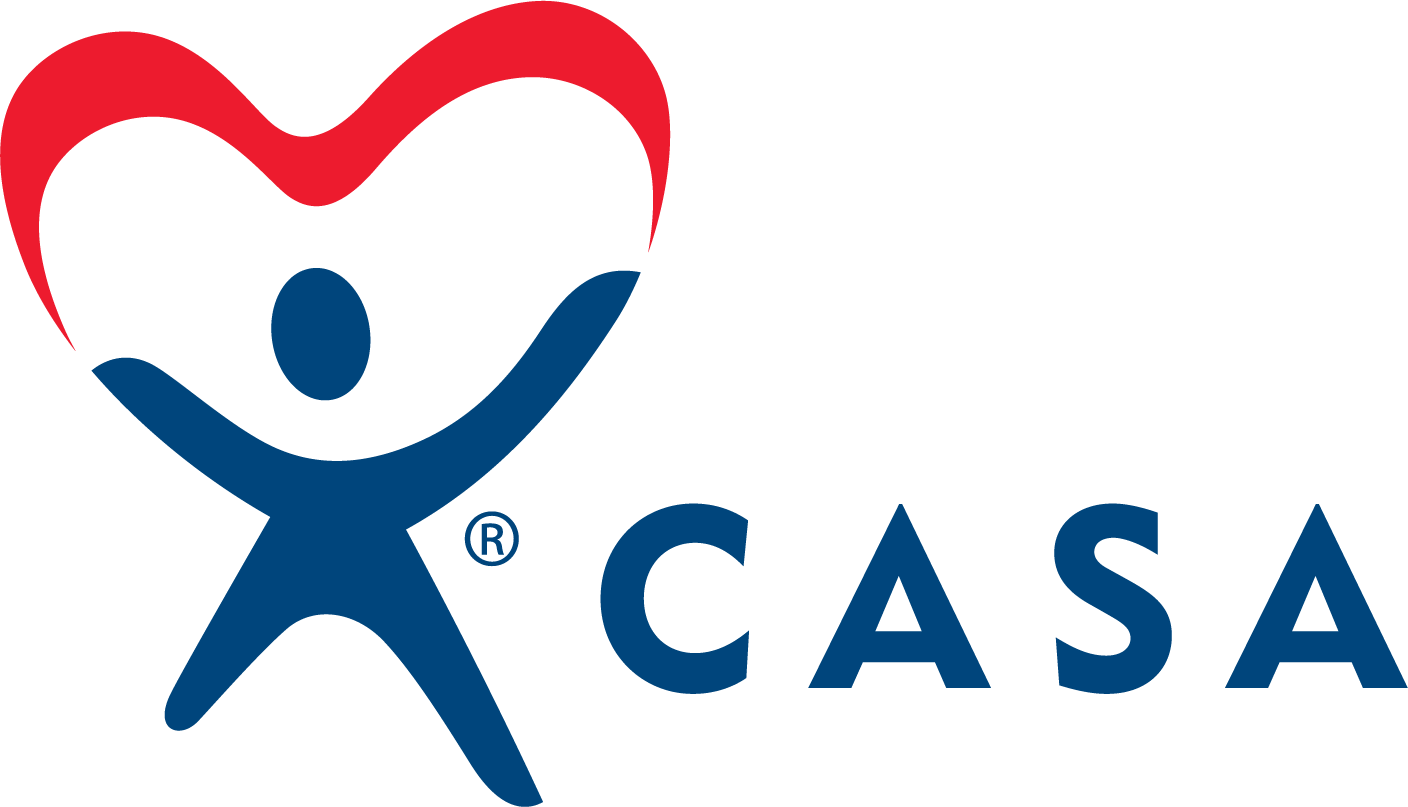CASA FAQs
Commonly asked questions about the CASA Program.
-
CASA volunteers are trained to act as first-hand experts on the individual needs of abused and neglected children in the system due to abuse or neglect, giving them the best possible chance at a hopeful future.
As an appointed member of the court, a CASA volunteer assumes the following core responsibilities:Serve as a fact-finder for the judge by thoroughly researching the background of the assigned case.
Speak on behalf of the child in the courtroom, representing his or her best interests.
Act as a “watchdog” for the child for the duration of the case, ensuring it is brought to a swift and appropriate conclusion.
-
Our judges assign CASA of Jefferson County at all the initial hearings involving our children. The child’s case is then triaged by our program and then (hopefully) assigned to a CASA volunteer. Since we currently have a wait list, we typically assign CASA volunteers to the most difficult and complex cases first. Those might involve physical or sexual abuse and neglect. Several other factors are also considered in making this decision:
The instability of the child’s current placement
The presence of conflicting case information
Concerns about the implementation of special services, such as medical care, counseling and education assistance -
2020 Data:
Nationally:
9,225 volunteers (CASA/GAL) advocated for 242,236 children in the system.
State of Indiana:
4,292 active volunteers advocated for children involved in 22,627 CHINS cases.
-
Commitment: The vast majority of cases last one to two years, and the amount of time spent on a case per month typically ranges between 10-20 hours. Volunteers must make case time a priority in order to provide quality advocacy.
Objectivity: Volunteers research case records and speak to everyone involved in a child’s life, including their family members, teacher, doctor, lawyer, social worker and others. Their third-party evaluations are based on facts, evidence and testimonies.
Communication skills: Once a volunteer has fully evaluated a case, they prepare a written report outlining their recommendation for the child’s placement. They must be able to speak with authority as they present their rationale to the judge in court. -
CASA volunteers undergo a thorough training and development program that consists of at least 30 hours of pre-service training, followed by 12 hours of yearly in-service training.
Volunteers learn about courtroom procedure from the principals in the system – judges, lawyers, social workers, court personnel, and others.
CASA volunteers also learn effective advocacy techniques for children, and are educated about specific topics ranging from seminars on child sexual abuse to discussions on early childhood development and adolescent behavior.
After completion of the initial training, volunteers are sworn in as Officers of the Court. This gives them the legal authority to conduct research on the child’s situation and submit reports to the court.
-
CASA Jefferson County is certified by the State of Indiana CASA/GAL program. This means we adhere to all standards and best practices set forward by our state office, which is located underneath the umbrella of the Indiana Supreme Court. It means we have support, at a state level, for questions or issues that may arise in our cases or in our programs. We turn in our data to the state quarterly. A CASA program in Indiana has the choice as to whether or not they are going to apply for this certification and adhere to the policies. CASA of Jefferson County is proud to be a member of this great organization.
In addition to our certification by the State of Indiana, CASA of Jefferson County is also a member of the National CASA Program. The 954 local and state member CASA program offices adhere to formal standards set by National CASA and are required to pass a quality assurance review, which is administered every four years. This self-assessment is a course of action taken by local programs in order to evaluate and improve their operations.
Staff teams work together to answer 446 questions and gather 58 supporting documents for submission to National CASA. Professionals outside the CASA network determine overall compliance by conducting an independent review of the standards self-assessment instrument and supporting documentation. Programs must address any compliance concerns within six months in order to maintain CASA membership.
How is CASA funded?
As a certified program of the state of Indiana CASA/GAL, we receive funding from the State of Indiana called “Matching Grants”. This amount is one number for the state of Indiana, to cover all 78 programs in the state. The amount each program receives is pro-rated based on the number of CHINS (Child In Need of Services) cases filed in the previous calendar year. For the past few years, our program has received approximately $20k a year. In addition to this portion from the State, the courts we serve are also required to “match” the amount the state provides. This means we receive funding from Jefferson County Circuit Court.
We do not receive any additional operating funds other than the State and the counties’ matching grant. Since we are a 501c3, we are responsible for our own fundraising to supplement our operating costs. We are constantly working on fundraising and grant-writing opportunities. -
The median cost per child is $1,500 a year, which covers recruiting, training, and supporting volunteers to advocate for the child.

